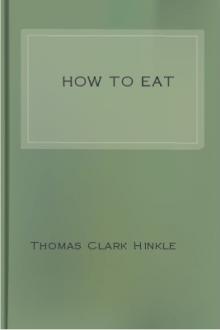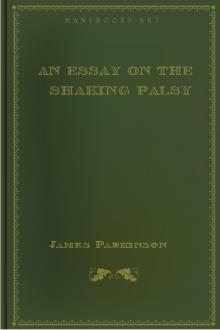Genre Literary Collections. Page - 12

malady. I have staggered in black despair with staring eyes and bleeding feet and crying soul along this road strewn with thorns and stones. I know what it is to lie awake all night and cry like a baby, with none to know and none to tell me what to do. I know what it is to be tremendously ambitious. Ambition! Ambition! Ah, God of Heaven! How a poor soul suffers who beyond everything else, craves to be able to do something big in this world because he knows he should, yet is held down by this dreadful thing, "nerves!" And how little, how unspeakably little, do physicians, even the greatest of them, know, actually know, how we suffer, unless indeed there be one in whose own body the fiend has sunk deep its talons.
After I had my first breakdown I made up my mind to study medicine because something told me that I was one of those "peculiar" people who just think there is something the matter with them. Is it not strange that with all the advance that has been made in general medicine, little or n

rembling of the arms about five years before. His application was on account of a considerable degree of inflammation over the lower ribs on the left side, which terminated in the formation of matter beneath the fascia. About a pint was removed on making the necessary opening; and a considerable quantity discharged daily for two or three weeks. On his recovery from this, no change appeared to have taken place in his original complaint; and the opportunity of learning its future progress was lost by his removal to a distant part of the country.
CASE V.
In another case, the particulars of which could not be obtained, and the gentleman, the lamented subject of which was only seen at a distance, one of the characteristic symptoms of this malady, the inability for motion, except in a running pace, appeared to exist in an extraordinary degree. It seemed to be necessary that the gentleman should be supported by his attendant, standing before him with a hand placed on each shoulder, until, by gently swa

It is the great mart which invites the ivory traders from the African interior. To this market come the gum-copal, the hides, the orchilla weed, the timber, and the black slaves from Africa. Bagdad had great silk bazaars, Zanzibar has her ivory bazaars; Bagdad once traded in jewels, Zanzibar trades in gum-copal; Stamboul imported Circassian and Georgian slaves; Zanzibar imports black beauties from Uhiyow, Ugindo, Ugogo, Unyamwezi and Galla.
The same mode of commerce obtains here as in all Mohammedan countries--nay, the mode was in vogue long before Moses was born. The Arab never changes. He brought the custom of his forefathers with him when he came to live on this island. He is as much of an Arab here as at Muscat or Bagdad; wherever he goes to live he carries with him his harem, his religion, his long robe, his shirt, his slippers, and his dagger. If he penetrates Africa, not all the ridicule of the negroes can make him change his modes of life. Yet the land has not become Oriental; the Arab has not

aphs, particularly those of the singular regionaround the star Rho Ophiuchi. Here are to be seen somber lanes andpatches, apparently forming a connected system which covers an immensespace, and which their discoverer thinks may constitute a ``darknebula.'' This seems at first a startling suggestion; but, after all,why should their not be dark nebulæ as well as visible ones? In truth,it has troubled some astronomers to explain the luminosity of thebright nebulæ, since it is not to be supposed that matter in sodiffuse a state can be incandescent through heat, and phosphorescentlight is in itself a mystery. The supposition is also in accord withwhat we know of the existence of dark solid bodies in space. Manybright stars are accompanied by obscure companions, sometimes asmassive as themselves; the planets are non-luminous; the same is trueof meteors before they plunge into the atmosphere and become heated byfriction; and many plausible reasons have been found for believingthat space contains as ma

ion is effected is essentially the same in all tissues, but the extent to which different tissues can carry the recuperative process varies. Simple structures, such as skin, cartilage, bone, periosteum, and tendon, for example, have a high power of regeneration, and in them the reparative process may result in almost perfect restitution to the normal. More complex structures, on the other hand, such as secreting glands, muscle, and the tissues of the central nervous system, are but imperfectly restored, simple cicatricial connective tissue taking the place of what has been lost or destroyed. Any given tissue can be replaced only by tissue of a similar kind, and in a damaged part each element takes its share in the reparative process by producing new material which approximates more or less closely to the normal according to the recuperative capacity of the particular tissue. The normal process of repair may be interfered with by various extraneous agencies, the most important of which are infection by disease

perfectly how the Psalmist can lift up his voice with strength and gladness, singing, "I put my trust in the Lord at all times, and his hand shall uphold me, and I shall dwell in safety." In the strength of the human hand, too, there is something divine. I am told that the glance of a beloved eye thrills one from a distance; but there is no distance in the touch of a beloved hand. Even the letters I receive are--
Kind letters that betray the heart's deep history, In which we feel the presence of a hand.
It is interesting to observe the differences in the hands of people. They show all kinds of vitality, energy, stillness, and cordiality. I never realized how living the hand is until I saw those chill plaster images in Mr. Hutton's collection of casts. The hand I know in life has the fullness of blood in its veins, and is elastic with spirit. How different dear Mr. Hutton's hand was from its dull, insensate image! To me the cast lacks the very form of the hand. Of the many casts in Mr. Hutton's c

when they are entirely divided, the rib-bones should becarved in the direction of the line from 5 to 6, and the brisket canbe helped by cutting slices from 3 to 4.
The carver should ask the guests whether they have a preference forthe brisket or ribs; and if there be a sweetbread served with thedish, as is frequently with this roast of veal, each person shouldreceive a piece.
Though veal and lamb contain less nutrition than beef and mutton, inproportion to their weight, they are often preferred to these lattermeats on account of their delicacy of texture and flavor. A wholebreast of veal weighs from nine to twelve pounds.
[Illustration]
A FILLET OF VEAL.
A fillet of veal is one of the prime roasts of veal; it is taken fromthe leg above the knuckle; a piece weighing from ten to twelve poundsis a good size and requires about four hours for roasting. Beforeroasting, it is dressed with a force meat or stuffing placed in thecavity from where the bone was taken out and the flap tightly

be sufficient from the housekeeper.
On assuming the duties of a new field, the housekeeper may remember merely a few important duties; for instance, she must carefully scrutinize the time-book and learn all the maids' names and stations. Next learn the location of rooms and become familiarized with every piece of furniture in them. Then, step by step, she should build up the general cleanliness of the house. This is by far the most important of all the requisites pertaining to hotel housekeeping. Guarding against difficulties encountered with the employes and with the managers' wives is secondary.
A housekeeper that can not take orders is not fit to give them; if the manager asks for the removal of an offensive employe, the housekeeper should immediately get rid of the objectionable person. If the housekeeper fails in deference to the manager's wishes, is not that good evidence that she is not a good soldier? She should be eager to maintain the dignity of her position--must maintain it in fact-

of a long course of development, of a series of revolutions in the modes of production and of exchange.
Each step in the development of the bourgeoisie was accompanied by a corresponding political advance of that class. An oppressed class under the sway of the feudal nobility, an armed and self-governing association in the medieval commune(d), here independent urban republic (as in Italy and Germany), there taxable "third estate" of the monarchy (as in France), afterwards, in the period of manufacture proper, serving either the semi-feudal or the absolute monarchy as a counterpoise against the nobility, and, in fact, corner-stone of the great monarchies in general, the bourgeoisie has at last, since the establishment of Modern Industry and of the world's market, conquered for itself, in the modern representative State, exclusive political sway. The executive of the modern State is but a committee for managing the common affairs of the whole bourgeoisie.
The bourgeoisie, historically, has played
